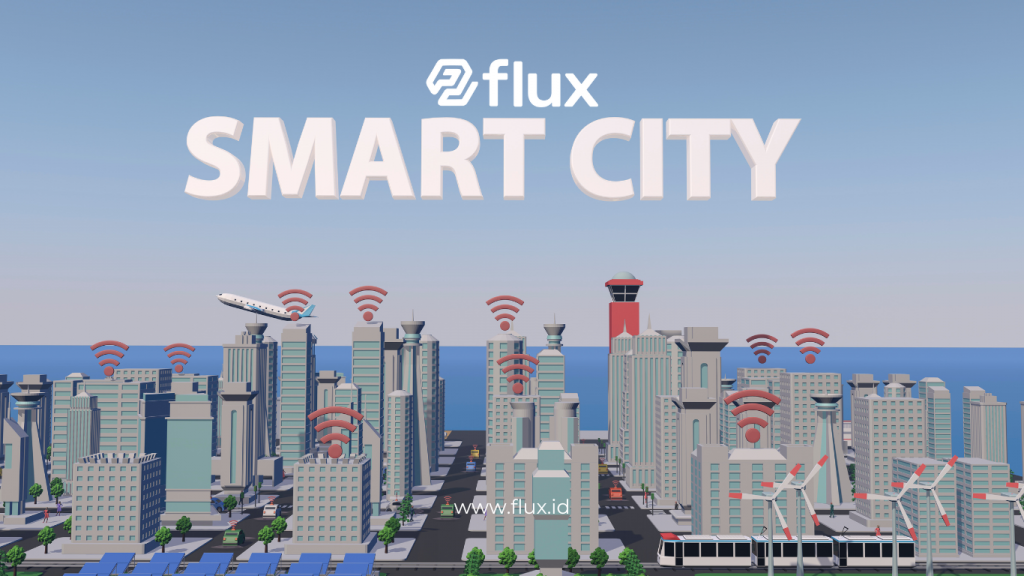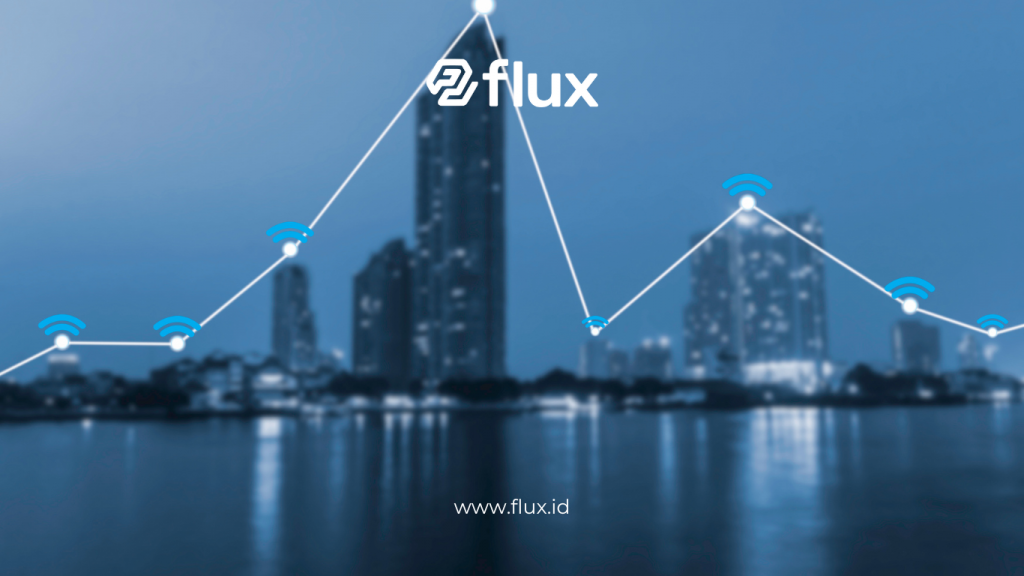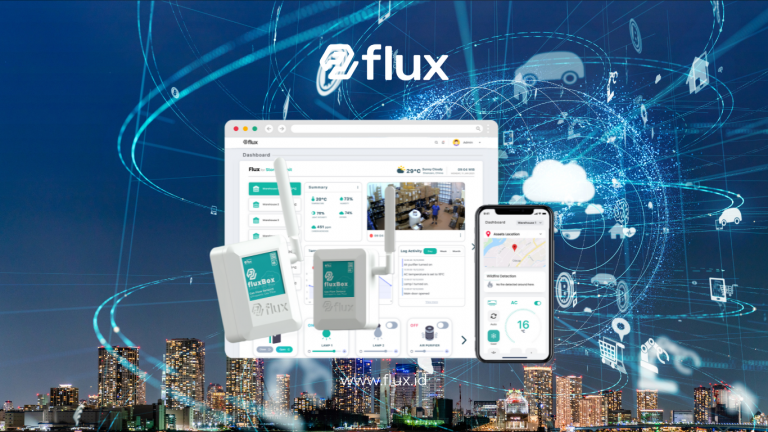Don't miss our holiday offer - 20% OFF!
Technological advancements continue to significantly impact cities worldwide. The concept of the “Smart City” has emerged as an innovative solution for enhancing infrastructure efficiency, security, and the quality of life for citizens. Through smart technologies—from IoT sensors to artificial intelligence (AI)—cities can become more efficient, safe, and sustainable. This article will explore the Smart City concept, key technologies used, and the benefits and challenges for future urban development.
Contents
What Is a Smart City?

Read More: Guide to Building a Smart City: Digital Transformation for a More Efficient City
A Smart City is a city that uses digital and IoT technologies to optimize various aspects of infrastructure and public services, such as transportation, healthcare, energy, and security. This concept aims to create an urban environment that is sustainable, environmentally friendly, and enhances the quality of life for its residents.
Key Technologies in Building a Smart City
In building a smart city, various advanced technologies connect and manage different city elements. Here are some of the main technologies that support Smart Cities:
- Internet of Things (IoT)
- IoT sensors connect various devices throughout the city, such as streetlights, security cameras, and air quality monitors. Data from these sensors enables real-time monitoring and better city condition analysis.
- Artificial Intelligence (AI)
- AI is used to analyze large data sets collected from IoT devices. With AI, cities can make predictions, optimize traffic, and respond quickly and automatically to events.
- 5G Networks
- 5G networks support faster, more stable connectivity, allowing for real-time data transmission. This technology is crucial for communication among many devices within a smart city.
- Blockchain
- Blockchain is used to increase data transparency and security in Smart City systems. This technology can be applied in digital identity management, automatic payments, and other transactions requiring high security.
- Geographic Information Systems (GIS)
- GIS enables spatial data visualization and geographical monitoring. With GIS, cities can map and analyze location data for more effective infrastructure management.
Benefits of Smart Cities for the Future of Urban Areas

Read More: How Smart Trash Sensors Work in a Smart City: Optimizing Waste Management with IoT Technology
Implementing smart technologies offers many advantages for cities and their residents. Some key benefits of Smart Cities include:
- Improved Quality of Life
- Smart Cities enhance quality of life by reducing air pollution, minimizing traffic congestion, and providing more accessible and affordable healthcare and education services.
- Energy Efficiency and Emission Reduction
- With sensors and automation systems, cities can manage energy use more efficiently, reducing carbon emissions and environmental impact.
- Better Traffic Management and Transportation
- Intelligent transportation systems use sensors, cameras, and AI to manage traffic, reduce congestion, and provide real-time information to drivers and public transport users.
- Enhanced Public Safety
- Security technologies such as AI-connected surveillance cameras and IoT sensors enable early detection of emergencies like fires, accidents, or crimes.
- More Effective Waste and Water Resource Management
- With IoT sensors, waste and water management can be performed more efficiently. These sensors allow for water quality monitoring and more responsive waste management systems.
Challenges in Building Smart Cities

Read More: Smart City Transformation: Understanding the Role of IoT Sensors in Optimizing Urban Infrastructure
Despite the many benefits, developing a Smart City also faces several challenges:
- High Costs
- Building smart technology infrastructure requires significant investment. Not all cities have sufficient budgets to implement this technology comprehensively.
- Data Security and Privacy
- The extensive use of digital technology increases the risk of data security breaches and privacy concerns. Cities need to ensure that citizens’ data is secure from cyber threats.
- Resistance to Change
- Some residents or stakeholders may resist changes brought by smart technology. It is essential to involve the community in the city transformation process to gain their support for Smart City implementation.
- Infrastructure Limitations
- Not all cities have infrastructure ready for transformation into a Smart City. Limitations in internet networks, electricity, and transportation can be obstacles in developing a smart city.
- The Need for a Strong Regulatory Framework
- The adoption of new technologies requires adequate regulations to ensure safe and ethical usage.
Examples of Smart Cities Around the World
Several cities have successfully implemented the Smart City concept, demonstrating how smart technology can improve quality of life. Here are some examples:
- Singapore
- Singapore is known as one of the best Smart Cities globally. It utilizes IoT and AI technology for traffic management, air quality monitoring, and energy efficiency in city buildings.
- Barcelona, Spain
- Barcelona has implemented IoT sensors to automatically manage streetlights, parking, and waste. This system helps the city save energy and reduce waste.
- Tokyo, Japan
- Tokyo uses smart technology to enhance public safety and predict emergencies, such as earthquakes. AI-based security systems help the city respond to natural disasters more quickly.
- Dubai, United Arab Emirates
- Dubai uses blockchain technology for public transactions and digital identities. This technology improves bureaucratic efficiency and reduces paper use in administration.
How Indonesia Can Implement the Smart City Concept

Indonesia has significant potential to develop Smart Cities, especially in major cities like Jakarta, Surabaya, and Bandung. Here are some steps to develop Smart Cities in Indonesia:
- Invest in Digital Infrastructure
- The government and private sector can collaborate to build digital infrastructure supporting Smart Cities, such as high-speed internet networks and 5G connectivity.
- Develop Human Resources
- Increasing technology and digital skills among residents and government employees is essential to support smart technology implementation.
- Public-Private Partnerships
- The government can partner with technology companies to bring smart innovations to various urban sectors, such as transportation, healthcare, and education.
- Supporting Regulations and Policies
- The government needs to establish regulations that support safe and ethical use of smart technologies and protect citizen privacy.
Conclusion
Smart Cities represent the future of urban areas, optimizing infrastructure and public services with smart technologies. Cities that adopt this concept can create a more efficient, sustainable, and comfortable environment for residents. While facing certain challenges, the potential benefits of Smart Cities are vast, particularly in improving quality of life and environmental sustainability. With the right steps, Indonesia can also develop Smart Cities that support economic growth and residents’ quality of life.





